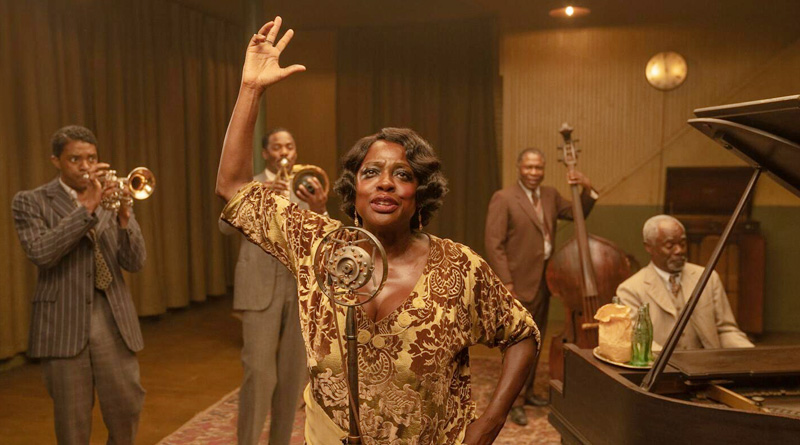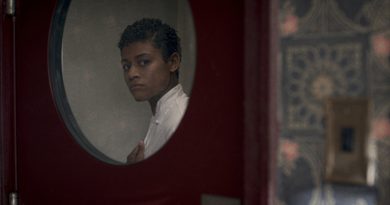Ma Rainey’s Black Bottom (2020) Review
Watching Ma Rainey’s Black Bottom is akin to experiencing an emotional roller-coaster — the varied feelings that alternate between joy, excitement, rage, contempt, fear and sadness. And it all happens in one place. A recording studio, to be exact with the movie mainly plays like a chamber piece.
Ironically, the sadness part of this movie reflects the untimely death of Chadwick Boseman, who passed away in August at the age of 43 due to colon cancer. His final screen role as the young and ambitious trumpet player Levee is undoubtedly one of the finest performances ever seen and it would be a crime if the Academy fails to recognise this. Boseman certainly gives his all here. An extended moment where he tells his fellow bandmates (Glynn Turman’s Toledo, Colman Domingo’s Cutler and Michael Potts’ Slow Drag) about his family’s traumatic past, is among the prime examples that truly showcase Boseman’s acting prowess. If that’s not enough, he actually plays the trumpet in the movie as well.
But Boseman isn’t the only scene-stealer in this movie. Let’s not forget about Viola Davis either. She delivers an amazingly authoritative performance as the legendary blues singer a.k.a. “Mother of the Blues”, Ma Rainey. Davis did her own singing too, even though most of the songs are performed by Maxayn Lewis, a famous vocalist who backed singers like Celine Dion, Donna Summer and Britney Spears.

Throughout the movie, we learn that she’s a difficult person to deal with. It begins with everyone from her band to her longtime manager, Irvin (Jeremy Shamos) and the producer, Sturdyvant (Jonny Coyne) are waiting for her arrival to record a few songs. She doesn’t care or feels sorry about showing up late at all. Or the fact that she insists on using her stuttering nephew, Sylvester (Dusan Brown) to voice the intro of the movie’s titular song.
At one point, there’s a whole reason why she wants to take control of everything and acts like a diva. Let’s just say it was a powerful moment that speaks about the race, prejudice and exploitation of African Americans in the movie’s 1920s era of jazz-age America.
Adapted from the late August Wilson’s 1984 play of the same name, both of the story and George C. Wolfe’s direction tend to feel stagey and theatrical. As flawed as it may sound, the movie manages to compensate them with an interesting hook. A hook of a single location that takes place over the course of a sweltering afternoon. Here, we see how the band talks, debates and argues over their different points of conversations from dreams and racism to the questionable existence of God, ego and personal experiences.
It also helps that August Wilson’s crackling dialogue in Ruben Santiago-Hudson’s adapted screenplay comes to vivid life, thanks to the fine ensemble cast. Tobias A. Schliessler’s sepia-tinged and warm cinematography, in the meantime, perfectly captured the look and feel of the 1920s era.
Ma Rainey’s Black Bottom can be streamed on Netflix beginning from December 18 onwards.





